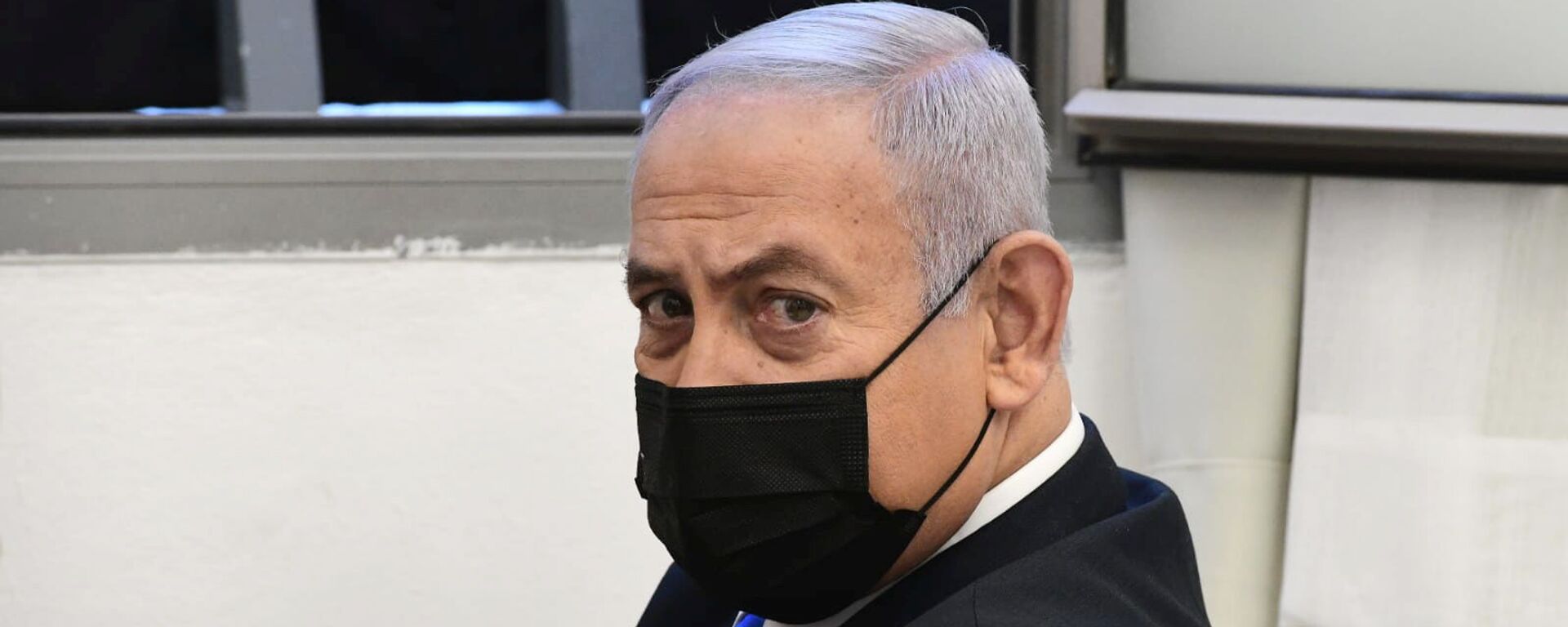In Israel, more than four of its nine million inhabitants have been fully vaccinated and although the authorities say the coronavirus pandemic is far from being over life is slowly returning to normal.
Last Sunday, Israel opened the doors of its bars and restaurants after them being shuttered for months. Hotels started to accept visitors, and as of next week, the country promises to lift even more restrictions, expanding the number of people able to gather in a closed area.
These and other decisions are a breath of fresh air for many Israelis, who have been crippled by restrictions for a year, but some still think the government's actions throughout the pandemic have been "disastrous", and this is why they would like to square their accounts with politicians in the polling booth.
Down With Netanyahu
Dina Goldman, a 35-year-old masseuse from the northern city of Haifa, says she will go to the polls on 23 March to vote out the current government and the person at its helm, Prime Minister Benjamin Netanyahu.
"I am either going to vote for the Rapeh party [that advocates free will on vaccinations - ed.] or Labour headed by Meirav Michaeli because having more women in parliament will benefit us all. But no matter what, I am not going to vote for Bibi".
Goldman accuses Netanyahu and his government of not providing "much optimism", promoting "fear in the media", and not offering "healthy and herbal" alternatives to the traditional medications propagated by the country's Ministry of Health.
With the outbreak of the coronavirus in Israel in February 2020, the government implemented a number of restrictive measures aimed at curbing the spread of the virus.
It shut businesses, closed down beauty salons, imposed lockdowns that banned people from exceeding a 1,000-metre radius from their homes – all these restrictions meant that Goldman's income as a masseuse has been affected.
"During the first lockdown, we were all scared. We didn't know what to do, many were given assistance by the state and so we abided by the rules and regulations. But as time passed and we got used to the situation, I realised that many of the restrictive measures were unnecessary. Even more so, they were damaging for our economy", she says.
The repercussions are still being felt in Israel, where more than 6,000 deaths have been registered since the outbreak of the pandemic.
In January, Israel recorded two million below the poverty line, many of whom have been pushed into this position because of the pandemic. In the second quarter of February 2021, statistics showed that 18.2 percent of the country was still unemployed, despite efforts by the government to lower those numbers.
Decisions That Don't Make Sense
Yuval Gerber, a 30-year-old resident of Tel Aviv, has also been hit hard by the pandemic. Before the pandemic, she was working as a media adviser in Israel's culture industry. But multiple restrictions and three lockdowns have brought her career to a standstill.
"When the first lockdown occurred we were all forced to take an unpaid leave. Then at one point we were given hope that cultural events would soon resume and we were brought back to work but that didn't last long either".
Now, still unemployed, she's angry at the government and their "poor" decisions.
"I have to confess: if I compare my situation to my friends who were forced to go back and live with their parents, or to others who were pushed into poverty, my conditions are not that bad. But as long as the cultural sector is shut, I am jobless".
That, however, is gradually changing. Museums have opened across the country, performances by artists have resumed, and sporting events are beginning to return. But as Israel surpassed 6,000 deaths since the start of the pandemic and with authorities warning that the crisis is far from over, many restrictions are still in place and Gerber says she fails to see "any logic" in the government's decisions.
"First, it was the decision to give out $225 to each Israeli, a decision that was unfair simply because there were people who didn't need that money, as opposed to others who did. Then it was the decision to leave many restrictions in place, despite the situation having changed and some measures were not necessarily needed", explains Gerber, adding that the actions of the government contributed to her overall frustration with the crisis.
"I don't feel that the crisis has been managed. All they [the politicians] do is fight with one another. And that leads me to lose trust in these politicians. I am going to vote but I don't know who I will end up choosing".






